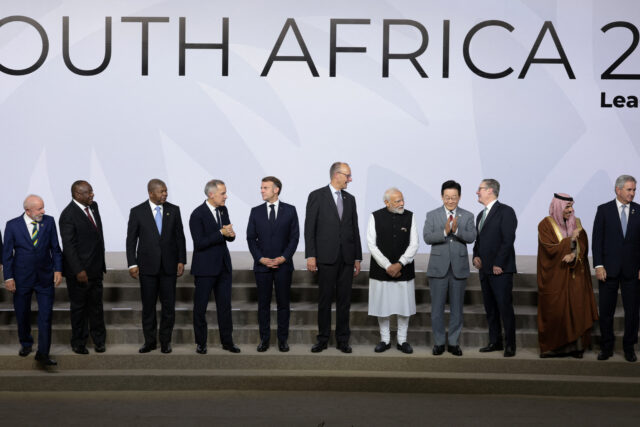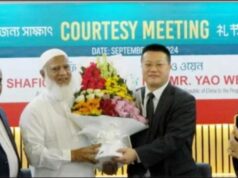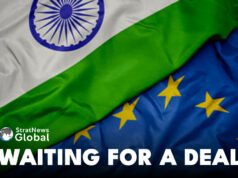
G20 leaders in Johannesburg adopted the summit declaration at the outset of today’s proceedings, an unusually early move that came even as the United States refused to participate.
Diplomats were taken aback by the timing, which followed strong support from attending nations for a document heavily influenced by India’s priorities and the concerns of the Global South.
South African President Cyril Ramaphosa confirmed the decision, telling leaders there was “overwhelming consensus and agreement” to adopt the declaration. He urged them not to “allow anything to diminish the value, the stature and the impact of the first African G20 presidency.”
The U.S. objections and absence did not shift the hosts. Ramaphosa’s spokesperson said the declaration “can’t be renegotiated” and noted that “the past week has been quite intense” as negotiators finalised support for the text.
Vincent Magwenya, speaking for the South African presidency, said the decision to adopt the declaration at the start was deliberate, explaining that “normally, the adoption of the declaration happens right at the end. But there was a sense that we should actually move to have the summit declaration adopted first as the first order of the day.”
U.S. President Donald Trump objected to the wording on climate change and announced Washington would not attend the summit. South African Foreign Minister Ronald Lamola rejected the idea that proceedings should be delayed, stating, “The multilateral platform cannot be paralysed on the basis of the absence of someone who was invited. This G20 is not about the U.S.”
The declaration carries forward India’s themes from its 2023 presidency. It reinforces New Delhi’s position on terrorism, condemning it in all forms, and places India’s digital vision at the core by highlighting Digital Public Infrastructure and reaffirming commitments to developing artificial intelligence that is “safe, secure and trustworthy.”
Women-led development features prominently, with calls to expand opportunities for women and girls.
India’s work on disaster resilience remains visible. The outcomes of the Disaster Risk Reduction Working Group are strengthened, and the Coalition for Disaster Resilient Infrastructure receives continued support. The Deccan High-Level Principles on Food Security and Nutrition, shaped during India’s presidency, are reaffirmed in discussions on global food insecurity.
Health provisions reflect India’s influence, recognising the role of traditional and complementary medicine in national systems. On climate finance, the declaration acknowledges that developing countries will need USD 5.8–5.9 trillion before 2030 to meet their goals. India’s LiFE initiative on sustainable lifestyles also reappears.
New Delhi’s long-standing push for UN Security Council reform is reflected directly in the document, mirroring the growing backing from Global South nations for updated global governance.
Prime Minister Narendra Modi told leaders that global development metrics must be reassessed. In a post on X, he wrote, “Now is the right moment for us to revisit our development parameters and focus on growth that is inclusive and sustainable. India’s civilisational values, especially the principle of Integral Humanism, offer a way forward.”
Leaders also endorsed a new G20 Critical Minerals Framework designed to help developing countries capture more value from their mineral wealth. The blueprint calls for investment in exploration, responsible mining and local processing, while emphasising the right of mineral-rich nations to benefit from their own resources.
Modi also met UK Prime Minister Keir Starmer, Australian Prime Minister Anthony Albanese and Canadian Prime Minister Mark Carney on the sidelines.
Following these meetings, a trilateral joint statement announced a new Australia-Canada-India Technology and Innovation (ACITI) Partnership on critical and emerging technologies alongside their existing bilateral initiatives.
The partnership will leverage the three countries’ strengths with a focus on green energy innovation, resilient supply chains—including in critical minerals—and deeper collaboration toward net-zero goals. It will also explore the development and wide adoption of artificial intelligence to improve public services and quality of life. Officials from all three sides will meet in the first quarter of 2026 to advance the initiative.
The summit remains underway, but the early adoption of the declaration—despite U.S. objections—has already marked the direction of the meeting, underscoring India’s continuing influence and the deeper integration of Global South priorities.




